Covid-Related Travel Update, Jan 2024: Chile is open to international tourists. Visit the Chile government’s official website for travel-related information and regulations. Don’t forget to read the government’s rules to be followed in public spaces here.
I went to Chile in July 2016 to teach English in a state school. I’m not a trained teacher, but I was volunteering as part of the English Open Doors Program, an initiative of the Chilean government.
All my friends, family, relatives, and acquaintances asked me what made me go to Chile. I told them I didn’t think much. They asked me if I could speak Spanish; I replied I would learn Spanish in Chile.
My family concluded my idea to travel to South America was an immature escape as the journey would leave me all alone and financially unstable. I was sucked into a whirlpool of emotional hurdles stirred by my loved ones who asserted they cared.
I was fired. I had just ended a two-year relationship I believed was my long-lasting love. The Titanic sank. I was going to be twenty-nine soon. Friends were getting married. Babies were being born. I did not know anyone in Chile. I did not speak Spanish.
Before I left, an uneasy feeling lingered in my stomach. Like the one that makes you shuffle through your pockets when you walk out of your home. Later I understood I was scared: of being alone, of unknowns, and of not knowing Spanish.
I did not know that in a couple of months I would learn the foreign language and speak it fluently.
My first encounter with Spanish in South America
I was nervous about arriving alone at night in the daunting metropolitan Santiago. So while packing my bags in the suffocating tension and the heat of the North-Indian summer, I had booked a taxi from the Santiago airport to the hostel. (Indian travelers will find my how to get a Chile visa guide useful.)
The taxi driver messaged me on Whatsapp where my profile photo was a two-braided version of mine with my sister’s orange-green-yellow parrot perched on my shoulder. The driver recognized me in the swarm of heads coming out of the international arrival and walked straight towards me holding a signboard with my name. He was a medium-built, fair man in a white shirt and black trousers with a soft smile and receding hairline.
The driver didn’t speak or understand English. It struck me that even a private cab company targeting foreigners through online bookings had hired chauffeurs with no English speaking skills. Perhaps I was being prepared for the oncoming roller-coaster.
The cab driver, who introduced himself as Pablo, enquired if I at least knew the basic Spanish phrases I will need during my stay. With a negative nod of the head, I barely conveyed that I spoke little Spanish. He said poco-poco (little-little). During the entire ride, Pablo steered with his left hand and talked into the Google Translate Speech of his cell phone held in his right hand.
Pablo wanted to know why was I visiting Chile from a far away Hindu land. I told him I wanted to explore South America while volunteering to teach English. He asked me about the language spoken in India, and I explained we talk in thousands of languages and dialects.
Wide-eyed, Pablo looked at me in the rear-view mirror. I was a mystery now. Not only I came from a far-away Hindu country but also brought another big conundrum: people of the same country speaking thousands of languages.
When Pablo enquired about the duration of my stay, I said at least four months not believing myself completely. Would I be able to live in Chile for so long? He confirmed if I was a Hindu, and I obliged. At that point, explaining my parents were Hindu but I was an atheist was impossible. I thank myself for not attempting. Later, I came to know that blatantly expressing your disbelief in God isn’t the best idea in Chile. Chileans are very religious, similar to Indians (find my 13 honest observations about Chilean culture in the linked piece).
Pablo’s questions started me on the correct note. Later on, almost every person in Chile asked me the same queries. Chileans’ knowledge of India was limited to television news and documentaries. So they had heard of all the major crimes, snakes, rats, tigers, Hinduism, dowry, child labor, and yoga in India. But not much else. (You can go through my Chile travel tips to get more such insider information.)
Pablo complimented my eyes. He was so genuinely surprised by my Indian face that I couldn’t help smiling from ear to ear.
As we drove into the quiet city full of fat, furry street dogs, my eyes scanned the graffiti on the walls in the dimly lit night. A scary blue face with a big nose and curious eyes stared at me. I saw many men wandering in the dark, narrow alleys holding beer bottles in their tattooed arms. Pablo’s Translate Speech (with a very weird English accent) warned me to be careful in Santiago, keep my belongings close, and not trust anyone even during the day. (My phone was snatched from me in Santiago after a few months.)
I settled into a fear. I wondered if everyone would be as compassionate as Pablo.
Another journey came to an end as Pablo stopped the car at the hostel. He insisted on carrying my backpack inside and kissed me on the cheek wishing me a pleasant stay. A Chilean traveler in Cambodia had already informed me about the Chilean greeting. The idea that the people of Chile don’t care if you are familiar with the kissing concept or are getting uncomfortable convinced me of their innocence.
Loaded with the warmth of Pablo’s hug, I checked in. Exhausted as I was, I quickly snugged in the bunk bed under seven soft blankets. It was time for jet lag, but my deep slumber on the thirty-six-hour flights had transferred me to the new time zone, soundly.
When Spanish hit me—I realized understanding and learning Spanish in Chile would be tough
As I started settling down, rare English-speaking Chileans and other volunteers from the English Open Doors program apprised me that few people speak English in South America. They said Chile is the worst country to learn to speak Spanish.
Chilean dialect is fast-paced and it has a distinct pronunciation from the rest of South America. Chileans drop some of the alphabets, such as s, from the end of the word. At times, they add suffixes to some words. Such as “ita” or “ito” to emphasize cuteness, littleness, or affection. So an amiga (friend) becomes amiguita and a gato (cat) becomes gatito.
Everyone warned me I would be bombarded with local idioms. They said Chilenismos, the notorious Chilean slang, wouldn’t let me sleep at night. And even if I would get a hold on the language, I would be lost if I move around the country. The rhythm of Chilean Spanish changes as per the local geography.
Couldn’t someone send me all that in a danger note before I flew to the other end of the world?
For a few weeks, I blankly watched the lips of the Chileans with whom I interacted daily. I desperately tried untangling the jumble of words while referring to my naive mental Spanish dictionary.
Suddenly, I was the toothpaste cover girl: silent and vacuously smiling. Like the referee in a tennis match, I turned my head from one speaker to another to understand the expressions. I was the excluded newcomer in the class; rarely asked for advice or answer unless directly involved.
Avoiding conversations was a new skill I had started assimilating. The quick cat who used to jump at everyone (literally with words) was out of breath and was watching silently from under the bed.
Spanish was not the only villain. Chileans love to talk about personal things, such as weight, age, complexion, romantic relationships, the number of children you have, and all other intimate details. And they rarely care if you understand their superfast Spanish or not.
I was living on the island of Chiloé. Once, I was in the house of my English head teacher’s friend when all the ladies — the headteacher, her friend, and head teacher’s sworn mother — started laughing. The big-bellied lawyer son of the friend, who sat next to me at the dining table, caught my confused expressions. He explained they were talking about him and me sleeping together. I gasped.
In the teacher’s staff room, all teachers joked about sex. Every word had a double meaning. I was so far away from the literal sense that grasping the double meaning was like trying to pluck a coconut by jumping on my feet. Ironically, I was the double-meaning-queen back home.
The Physics professor always greeted me multiple times to kiss me on the cheek. His big belly shook as he approached me pouting. As I started understanding the relevant words, I was mostly collapsing into myself with the vivid details of the conversations floating around me.
Cecilia, my host mother, who only spoke Spanish, patiently repeated words so I could remember them. I can’t recall how many times she served a second helping of pasta or rice as I couldn’t convey I was full.
Cecilia was short, energetic, and resilient. One Friday night, Ceci, all volunteers, and other boarders of Ceci were in the kitchen drinking beer. Ceci said something about the juicy mangoes of one of the volunteers from the US, and I turned around hoping not to hear about my juicy mangoes ever. I had to. Later, a Chilean housemate who worked as a nurse complimented my breasts in her slang, while a Chilean Psychologist, a male housemate, translated for me.
I can never turn red, but Chile had started putting color in my cheeks.
I survived on translations. We all know interpretations are at the mercy of the translators and can be compromised.
I spoke within the limits of my infant, two-page, ink-smudged vocabulary. It was enough to cover routine activities but any new event — wanting to have a coffee instead of tea or the water heater not turning on at seven in the cold morning as two other people queued outside — sucked me into the vacuum of words.
I longed to ask the students if they liked my classes. One line was easy to memorize, but what about the conversation that would have followed? “Catalina, Francisco, Francisca … Jesus,” I called out students’ names to take to class. An auditorium crowded with students, teachers, and coordinators laughed. I sank to the floor. Jesus was to be pronounced as hesoos as in Spanish J sounds as H. English window of Google Translate generally spat out the same word as it was incorrectly spelled. Thanks to the clear Chilean pronunciation.
A Chilean man Eduardo, whom I met through a common friend, told me he liked me. I smiled while mentally translating the words into a language I am used to being admired in.
I was perpetually watching a foreign language movie without subtitles. Moreover, I had to act. The uneasiness pestered me like a constant toothache.
Imagine, if Madonna could not sing. Michael Jackson could not dance. Suddenly, my magic wand — my words — had been taken away. That’s when I decided to break the shell.
Also Read: Ten Things Travel Taught Me
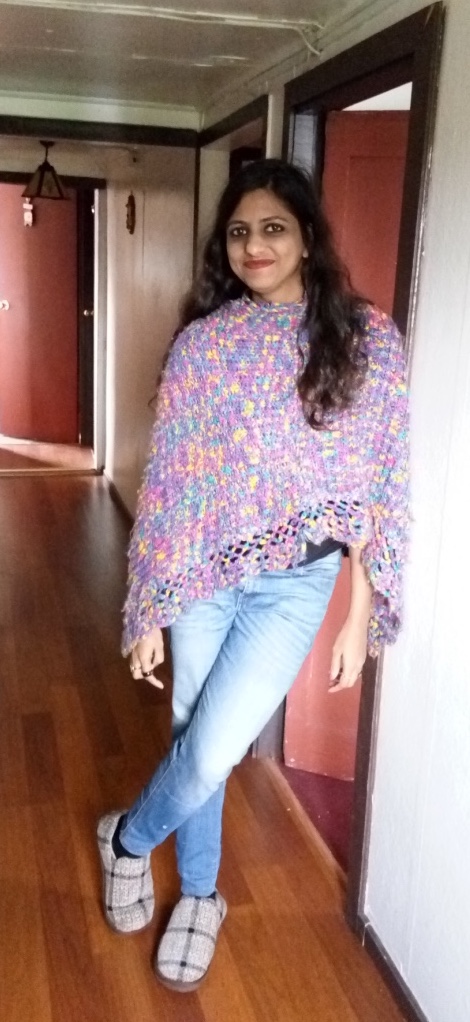
Craving to Communicate—When I embraced embarrassment to teach myself Spanish
Abandoning the embarrassment of incorrect speech and hopeless pronunciation, I jumped at every opportunity for conversation. I taught myself Spanish grammar from a book. The grammatical concepts wiped off the doubts that had surfaced listening to the conflicting Chilean Spanish of the people around me. I watched the news with subtitles and waited for the sterile soap operas I would not deign to watch back home.
I rehearsed all possible scenarios for future conversations like a programmer thinks of all possible inputs to a program. But even the ‘Hello World’ window did not pop up sometimes. Discussions at a party were most difficult as the drunken Chilean-Spanish is a steeper mountain to climb. Some days, I felt prepared, but suddenly people started using new words.
Hand gestures concluded what words could not. A hand wave to the left meant past; right meant future. Instead of Spanish, I was mastering sign language.
I was so exhausted sometimes that instead of processing the words my brain just queued them up. Studying Spanish involved constant brainwork to which it wasn’t used to. I nodded along; everyone believed I concurred a lot.
Ruined conversations — courtesy of my broken Spanish — revisited, like a nagging partner.
Once, I went to the pharmacy to buy sanitary napkins. But all I could do was stand at the counter and stare at the pharmacist like a fool. I hadn’t Googled the Spanish word for sanitary napkin. I squinted hard as if I was trying to recall a chemical equation, while the lab assistant watched me. He finally said something about women’s sanitary needs, and I shouted, si (yes).
Another time I could not avoid visiting a dentist when my molar with a cavity as huge as my fist started aching. The dentist explained the problem to my host mother. Both the ladies knitted their eyebrows. My host mother peeped into my mouth occasionally and kept repeating muy mal (very bad). (Instead of visiting a dentist, I suggest you go on one of these 50 adventures in Chile.)
Laying there on the dentist’s seat with my mouth wide open and saliva drooling from the corner of my mouth, I wondered if I was dying. My brain rushed to my assistance and convinced me that a dentist wouldn’t know that.
Once, in a jewelry shop, I asked about the material of the ring by giving reference to the Olympics. Of course, gold and silver can be only referred to by Olympics standings. I used to go to a top-floor, ocean-view coffee shop in the shopping mall. I ordered so many cups of coffee and tea, but only once or twice did I get what I wanted.
Luckily, I didn’t feel embarrassed about any of these broken conversations while I learned Spanish.
South Americans were like my auto-correct assists. They are helpful; don’t let anybody tell you otherwise. As I backpacked solo across Chile, Bolivia, and Peru for five months, conventions and the style of conversation changed with the country. But I had ample help everywhere.
From picking me, to barbecuing pork or chicken, because I did not eat beef, preparing piscos, teaching me Spanish, listening patiently when all I did was mumble and cry, waiting for me to finish phone calls back home to eat together, baking cakes for my birthday and inviting to their houses, and persuading me to eat with hands when the pork was bony — Latinos did it all.
They even watched me with welled-up eyes when I stood up on my Spanish feet on their continent. As I bought groceries or took a cab for the first time, I dashed through the door to narrate my success story to Ceci and other volunteers. They all watched me proudly.
With basic conversations, a bridge started getting built between the Chileans and me. As I comprehended more, the bridge grew longer and stronger. South Americans also cemented the bricks in the bridge from their end by enunciating and repeating the words, rewording, and being patient.
Some nights, I hit the bed joyfully; other nights, I tossed around wondering if we would ever understand each other completely. I craved deep relationships with my host mother, professors, students, friends of people I knew, and men whom I liked. But I feared I will never be able to connect with them.
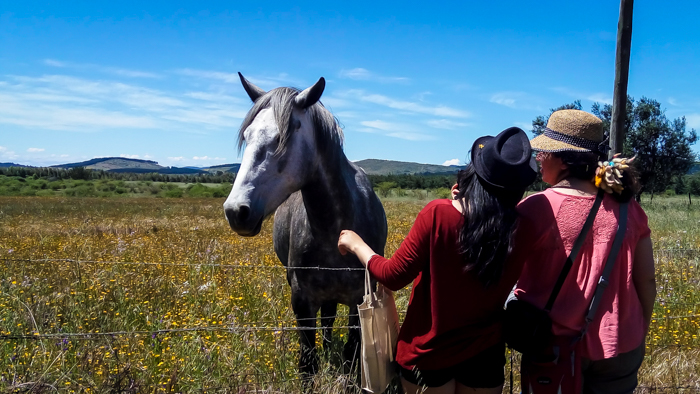
my hard work paid off—I learned Spanish in Chile
My fears never materialized.
In my farewell speech, the director of my school said my evergreen smile reminded her of the sole purpose of life: being happy. My host mother was in tears when I left as she was not sure if she will ever get a daughter again who always cared. When I bid goodbye to my students, they told me to continue teaching as they had gotten used to me and missed my classes.
I made a lot of friends. Cooked Indian food in their closest gatherings. Danced on Bollywood songs. They wished I could marry their sons. They said they will cry when I leave, and they did.
And along with the goodness of the people of Chile, my colloquial Spanish played a big role in forming these connections. ( ideas on understanding our emotions better.)
But how did I learn the colloquial Chilean Spanish?—My Story Learning Spanish
Conversing in a language colloquially is an art, like baking bread. You need the perfect flour-to-water ratio, frothy yeast, some sugar, the right temperature, and the impeccable rise. One has to also knead and punch the dough. If you miss any one of these, the bread will not have the crackling crust or the soft crumb. Recipes and Youtube videos help, but you will only nail the preparation once you have made it a few times with love and care.
To be able to speak colloquially, we will have to talk to native speakers. If you are attentive, you grasp the accent, appropriate words, modifications, speed, and idioms. As I have been a talker all my life, I noticed all these little nuances, practiced them, and these amalgamated me with the people of Chile.
I have seen truck drivers who gave me a ride light up as I referred to them as Caballero (gentlemen). Or women gleaming with pride as I complimented their cheese empanadas with chilenismos.
As I started to understand Spanish, even conversations back home and English writing simmered in Spanish pots.
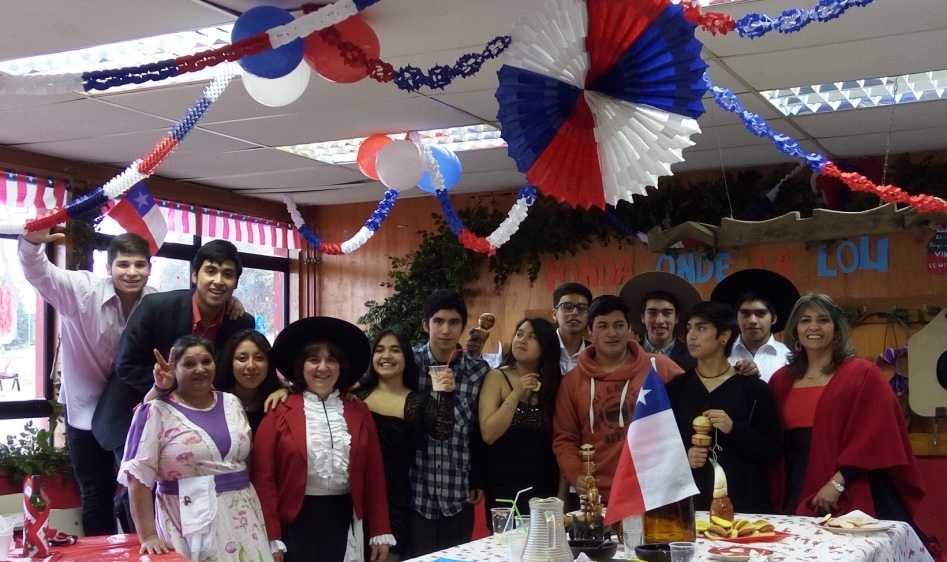
I was alone and couldn’t talk in Spanish in South America. Wasn’t I scared?
Traveling solo, especially as a woman, without knowing the language, is like driving at night on a mountain road without street lights in heavy fog. The road has hairpin bends, and you can’t see beyond fifty meters. There are infinite possibilities for accidents.
But I had started this solo drive around the world five years ago and had my fair share of doubts.
I was sure the cab driver who asked if he could sleep in my room in Munnar would break in. Or the motorbike taxi drivers who came to drive me to Goa were going to abduct me. Or the creepy, crooked-teeth man cycling in Bangkok would not leave me alone. Or the young tattooed guy who followed me in the streets of Paris would try to force himself on me in a dark alley. Or the flirtatious guides and the helpers on the Amazon tour in Peru would grab me.
Thankfully none of these assumptions materialized.
Once, I was attending a birthday party with a friend at his friend’s place near my home in Castro. We drank wine, sang, barbecued, danced, and discussed Shiva and yoga until 4 am. My friend wasn’t feeling well so he got dropped by his friends. I decided to walk.
Google Maps never worked in that small town, and my sense of direction is my most-trusted asset. So, I put my trust in the fact that everything works out eventually.
I got lost. When I crossed the friend’s house for the second time, I hoped no one saw me. Somehow, I walked into a street patrolled by seven to eight giant dogs. They yapped and growled as they saw me approaching closer. They started closing up on me. I was sure I was going to be their late dinner. Or that they would bite me and leave me to die. Their barks echoed in the night. I walked with baby steps and tried to hush them off in Spanish.
Somehow I managed to come out safely. After taking a few turns, I got a glimpse of the main road I recognized. There I saw a man walking towards me. Newspaper headlines from back home flashed in front of my eyes, “An eighteen-year-old girl dragged off the street and raped in the dark night.” Rivulets of sweat trickled down my temple. We crossed each other peacefully.
My mental GPS had activated; I was still two streets away from home. Then I heard a car engine and loud screeching. Someone was driving rashly, close by. I paced up. In a few minutes, I spotted the red car at a distance. It reminded me of the Maruti Omni, the kidnapping vehicle of India. I imagined the door sliding and being pulled inside by three bulky, cold Chilean men. I imagined my friends searching for me and being found at the beach the next day. As the car and I closed on from opposite directions, my throat parched. My breaths became faster. The driver slowed down to have a look at me and drove away.
Finally, I arrived home. As I unchained the main gate, I sighed with relief.
South America is notorious as a dangerous place for female travelers or women. But I did not feel more insecure there than in any other place I have been to. My cell phone was snatched from me on a bus in Santiago, but that could have happened to anyone.
Even all the solo male travelers I have met have been scared at some point: of malaria in Amazon, getting knocked out and robbed in some dark street in La Paz, being stopped on a motorbike by corrupt police in Chiang Mai, or of the stoned hostel receptionist in Sucre, or of going into a Brazilian City when the tour agency warned them of kidney thefts.
I have been able to drive down the mountain road without any casualties while appreciating the silence of the drive. (Oh, I was once stranded on Chile-Bolivia border and both the countries didn’t want me.)
Do I miss speaking Spanish?
As I dwell on these memories thousands of kilometers away from my second home at the end of the world, I miss the wine and the Spanish conversations around the fire. I miss learning new words every day and coming up with discussions to be able to practice them. I long for a kiss on the cheek in the morning and one every time I leave home.
South America stripped off my husk. I care less about minor junk. I wear beautiful dresses and walk fearlessly on Indian streets with my lips painted red. I enjoy the stares. I believe anything is possible. I hug, pat, and kiss people. I laugh freely. My family has started accepting who I am. I have discovered a new kind of freedom. I am myself more than ever.
I have not had enough of South America, and I will go back one day to find what is left behind.
- Most important Spanish words and phrases you would need in South America: In the guide also find the corresponding English and Hindi phonetics. The phrases are divided into categories and the guide is printable.
- 25 tips to master a foreign language (Based on my experience of learning Spanish in Chile)
- Everything you need to know to travel in South America: On this page, you will also find all my travel articles on South America.
Are you planning to go to Chile? Let me know if you are excited or nervous about teaching yourself Spanish in South America.
Buen Viaje!
If you liked my story, please pin it and share it with the world.
*****
My much-awaited travel memoir
Journeys Beyond and Within…
is here!
In my usual self-deprecating, vivid narrative style (that you love so much, ahem), I have put out my most unusual and challenging adventures. Embarrassingly honest, witty, and introspective, the book will entertain you if not also inspire you to travel, rediscover home, and leap over the boundaries.
Grab your copy now!
Ebook, paperback, and hardcase available on Amazon worldwide. Make some ice tea and get reading 🙂
*****
*****
Want similar inspiration and ideas in your inbox? Subscribe to my free weekly newsletter "Looking Inwards"!

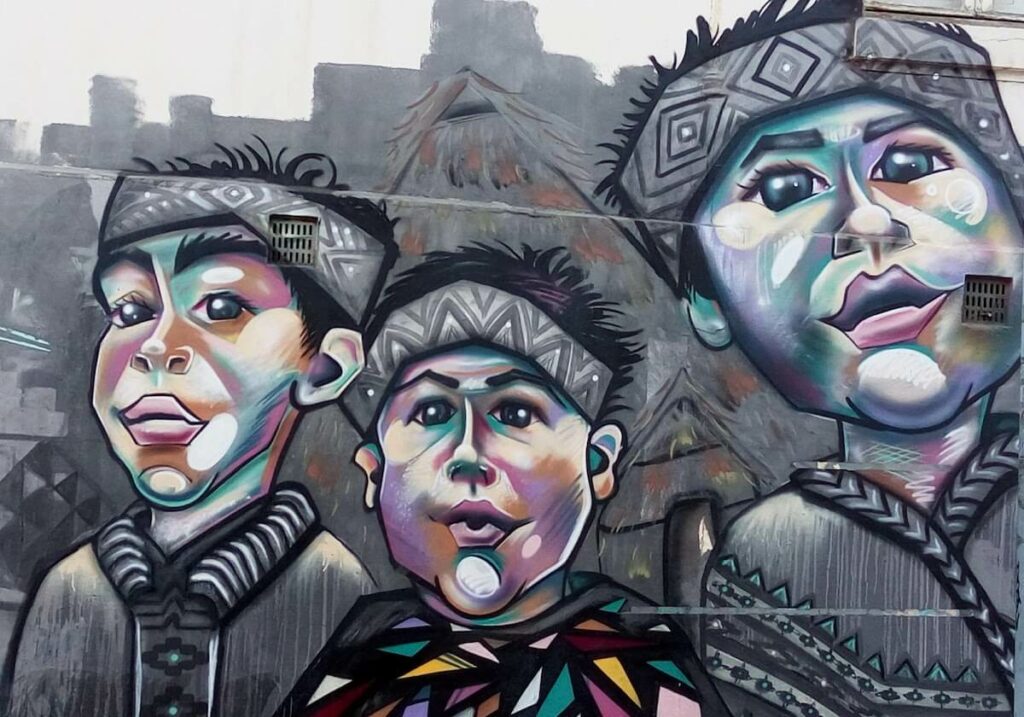
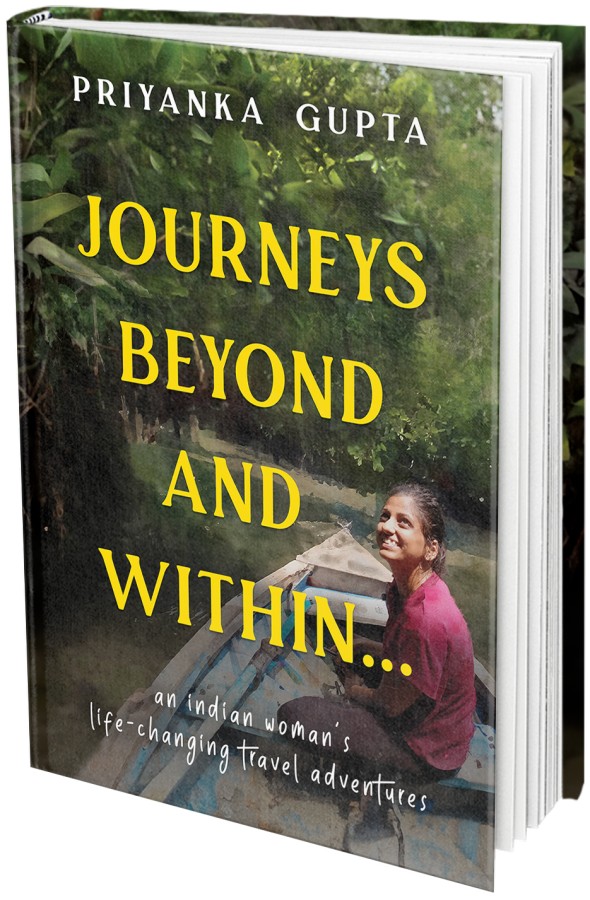
Hey Priyanka,
Nice post detailing your journey in South America.
Call me as replicates of each other personality-wise. I plan to go to South America in a couple of months and would love if we could go together. I know this is very random but at the same time a great opportunity to indulge in intellectual discussions and have a great travel. Or we could take this over on mail (sheethalvr@gmail.com). Look forward to hearing from you.